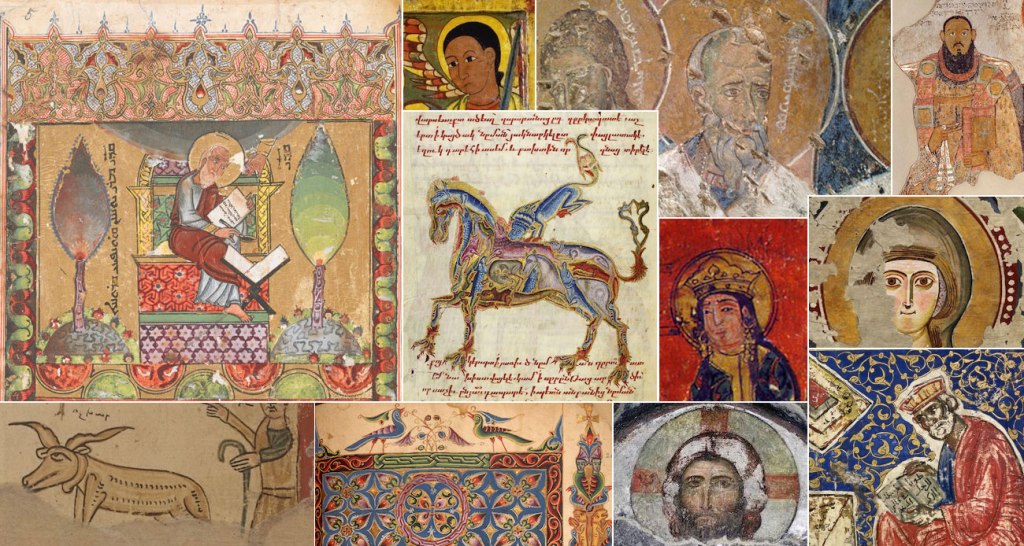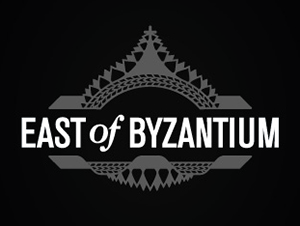Studying East of Byzantium X: Communities

EAST OF BYZANTIUM WORKSHOP
Michael Pifer, University of Michigan
Salam Rassi, University of Edinburgh
Studying East of Byzantium X: Communities is a three-part workshop that intends to bring together doctoral students and recent PhDs studying the Christian East to reflect on the usefulness of the concept of “Community” in studying the Christian East, to share methodologies, and to discuss their research with one another and senior specialists in the field. The workshop continues the efforts of East of Byzantium, the partnership between the Mary Jaharis Center for Byzantine Art and Culture at Hellenic College Holy Cross and the Mashtots Professor of Armenian Studies at Harvard University (from 2022–), to foster an interdisciplinary community of early career scholars engaged in the study of the diverse traditions of the medieval Christian East, including Syria, the South Caucasus, Mesopotamia, and Egypt.
What is the meaning of the term “Community” in the context of the medieval Christian East? What kinds of communities existed, and how were they formed? Recent research has used the concept of community to explore a range of social experiences, including textual, religious, and visual communities, genealogical communities, and monastic and urban communities, among others. How useful is this concept, and what are its limits within and across the vast and diverse spaces of the Christian East?
This year we invite all graduate students and recent PhDs working in the Christian East whose work considers, or hopes to consider, the theme of communities in their own research to apply.
Workshop Format
The workshop events will be led by Michael Pifer and Salam Rassi and facilitated by Christina Maranci and Brandie Ratliff. Meetings will be held on Zoom. The first event on November 17 will be a short introductory session where participants introduce themselves and their projects. During the second event on February 9, participants will provide a short 10-minute update on their research and have the opportunity to pose questions or problems to the group. At the final two-day event on June 6–7, each participant will deliver a 20- to 25-minute presentation based on their project. While research projects may be on any topic and need not focus specifically on networks, the workshop theme should be the focus of the presentations. Individual presentations will be followed by a 10-minute response from Michael Pifer or Salam Rassi and a general discussion. The timing of the workshop meetings will be determined when the participant list is finalized.
Eligibility
Doctoral students or recent PhDs studying the Christian East. All disciplines are welcome. Early career researchers should have received their PhD in 2023. Priority will be given to graduate students.
Abstracts
Interested students should submit a C.V. and a 200-word abstract no later than September 18, 2023. Papers should be based on the dissertation project. The final output may be in the form of a conference paper, a dissertation chapter or excerpt, or an article.
Complete Papers
Papers should not exceed 5,000 words in length including footnotes. Complete papers must be submitted to all workshop participants no later than May 5, 2024.
Timeline
September 18, 2023: Abstracts due
October 3, 2023: Organizers notify workshop applicants of status
November 17, 2023: Workshop, Part I (Zoom)
February 9, 2024: Workshop, Part II (Zoom)
May 5, 2024: Complete papers due
June 6 and 7, 2024: Workshop, Part III (Zoom)
Michael Pifer is Assistant Professor of Armenian Language & Literature at the University of Michigan. Dr. Pifer is a specialist in Armenian cultural production with an emphasis on the development of vernacular Armenian literature during the medieval period. His work focuses on how Armenian literature developed alongside neighboring literary traditions within shared spaces. His interests turn around questions of multilingualism, mixed-script writing, and the ways in which premodern poets attempted to accommodate certain forms of cultural difference within their compositions. By decentering monolingual approaches to literary history, his research aims to contribute to knowledge about cross-cultural dialogism across the literary landscapes of premodern Armenia and its adjacent regions.
Salam Rassi is Lecturer in Islam and Christian-Muslim Relations at the University of Edinburgh. Dr. Rassi is an intellectual and social historian specializing in Christian-Muslim interactions. His research primarily focuses on the religious, intellectual, and social history of medieval Christian communities in Muslim-ruled land, particularly historical theology, philosophy, history of science, and literature. He also works extensively with Arabic and Syriac manuscripts.
